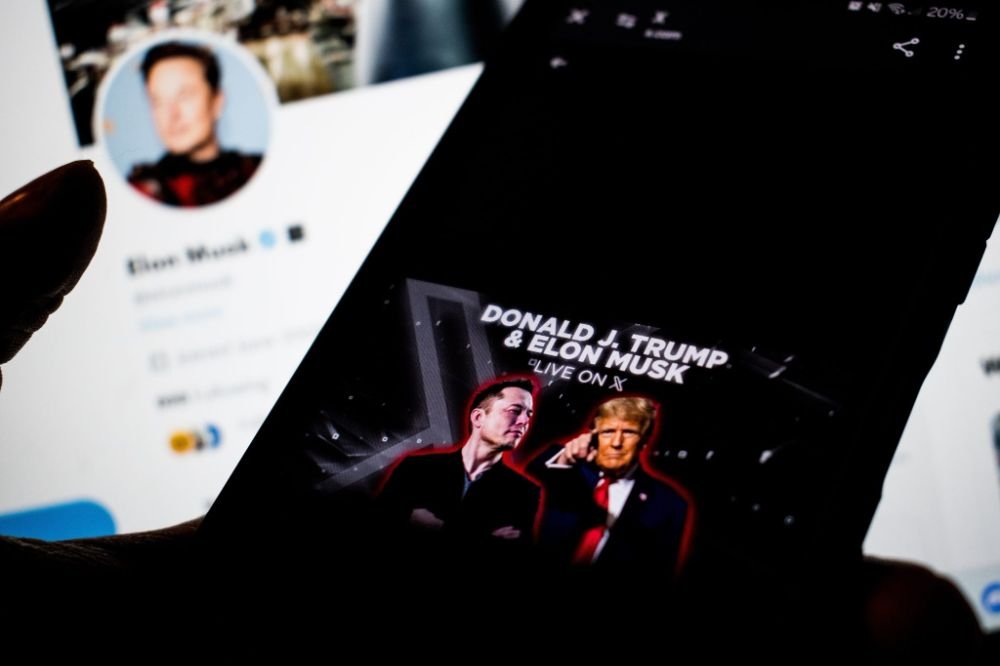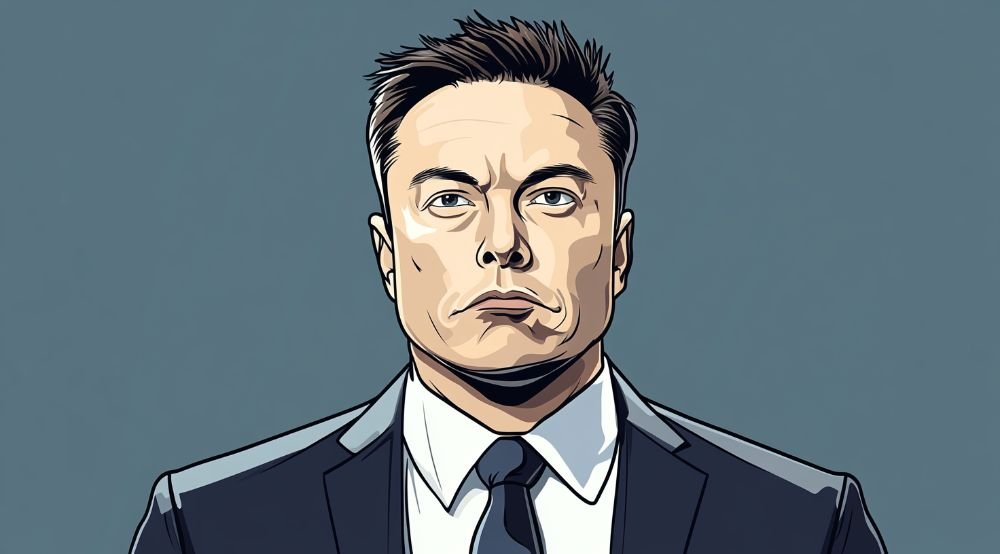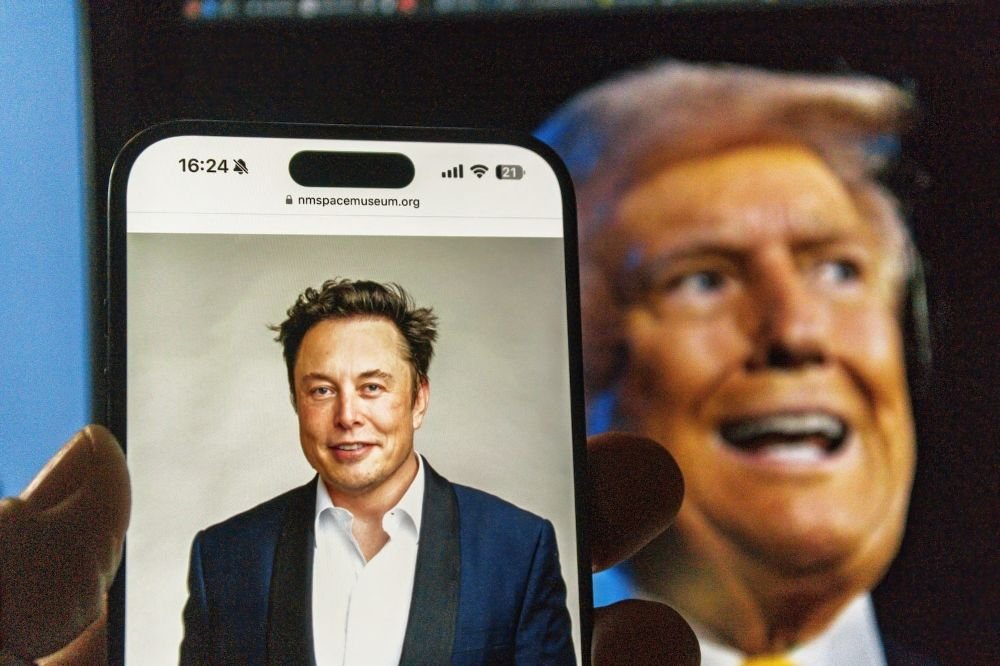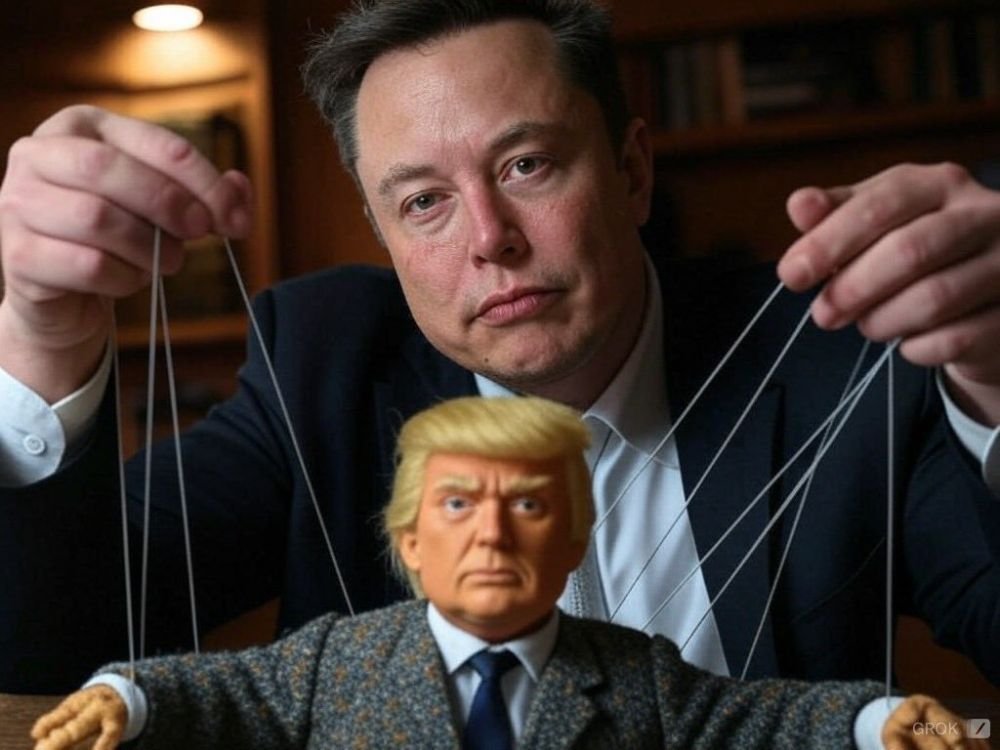
Bernie Sanders: Elon Musk Supports neo-Nazi parties around the world
check the video below from: Senator Bernie Sanders
1. Introduction & Purpose of This Blog Post
The role of billionaires in global politics has been a contentious topic for many years. Whether it’s campaign financing, political endorsements, or the influence wielded through massive social media platforms, ultra-wealthy individuals can shape discussions and outcomes on a scale most ordinary citizens simply cannot match.
Recently, Elon Musk—the business magnate behind companies like Tesla, SpaceX, and formerly associated with PayPal—has faced a new wave of serious allegations. Numerous online commentators and social media users have claimed that Elon Musk supports neo-Nazi parties around the world, endorses extremist figures, and even performed a “Nazi salute” at a presidential inauguration. These allegations, if proven true, have profound implications not just for Musk’s public image but also for the broader landscape of global politics and the future of democracy.
But are these allegations verified? The answer is complicated. Media reports, social media discussions, and transcripts from various sources sometimes conflict. In many instances, official or neutral third-party confirmations are lacking.
In this blog post, we aim to explore these claims and provide a thorough, but cautious, look at the allegations. Our readers, particularly those in the LGBTQ+ community, may wonder how the rumored alignment of a powerful individual with far-right ideologies impacts human rights and social progress. This is a serious conversation that has ramifications well beyond the United States—touching Europe, Canada, and beyond.

2. Disclaimer: On Allegations and Unverified Claims
Before delving into the details, it’s vital to reiterate that many of the claims outlined here remain unverified by reputable, universally recognized sources at the time of writing. Some allegations may originate from anecdotal social media posts, partisan websites, or uncorroborated commentary. It’s possible that certain quotes have been misattributed or taken out of context, and that images or gestures labeled as “Nazi salutes” might be misinterpreted.
We are presenting these claims as reported or alleged. We are not asserting these as established facts unless credible sources or direct evidence are cited. This blog is intended to stimulate discussion, promote critical thinking, and encourage further research rather than to pronounce final judgment on these matters.
Readers should approach these topics with discernment. If these issues concern you, consider seeking additional information from well-regarded news outlets, public records, or direct statements from Elon Musk, his legal team, or verified social media channels. Remember, the truth often emerges through rigorous, unbiased examination of evidence.
Advertisement · Scroll to continue
Recommended
3. Background: Elon Musk’s Public Image and Political Engagement
Elon Musk’s journey from tech entrepreneur to global influencer is well-documented. Born in South Africa, Musk moved to Canada and eventually to the United States, co-founding a series of companies such as Zip2, PayPal (originally X.com), and most famously Tesla and SpaceX. Over time, he developed a reputation as a maverick CEO—known as much for his audacious goals (like colonizing Mars) as for his sometimes unpredictable presence on social media.
In recent years, Musk’s involvement in political dialogue has intensified. From expressing policy opinions on Twitter (now rebranded as X) to making cryptic remarks about political candidates, Musk often straddles the line between “eccentric commentator” and “strategic influencer.” Some see him as a champion of free speech. Others criticize him for amplifying divisive content, promoting unverified claims, or pressuring governments that regulate his companies.
Yet, nothing is more polarizing than the claim that he supports or aligns himself with far-right, extremist ideologies. In part, these claims might stem from:
- His personal endorsements of controversial political figures.
- Reported involvement (though not always verified) in political campaigns across multiple countries.
- Financial influence in the form of campaign donations or the use of his tech empire to sway public opinion.
It’s worth noting that Musk has also garnered praise for championing electric vehicles, investing in renewable energy, and providing internet connectivity in areas affected by conflict or disaster. These progressive initiatives stand in tension with the idea that he might back extremist movements.
The question becomes: How do we reconcile the philanthropic, futuristic side of Elon Musk with accusations that he is propping up dangerous ideologies?

4. Overview: Claims Regarding Elon Musk’s Alleged Support of Far-Right Parties
4.1 Elon Musk and Alleged Neo-Nazi Salute
Perhaps the most dramatic allegation circulating online and in certain corners of the blogosphere is the claim that Musk gave a “Nazi salute” during Donald Trump’s inauguration. Some supporters of this theory purport to have photographic or video evidence. Others say the alleged salute happened multiple times and that it was no accident.
Critics point to specific gestures—like a stiff-arm wave or a certain posture—that they label as “Nazi-like.” However, no mainstream media outlet has confirmed this claim. No official statements from Trump administration officials, event security, or reputable historians have validated the alleged salute as anything more than Musk perhaps waving or standing awkwardly.
As a matter of public record, it is extremely rare for credible news outlets to label a wave or salute as definitively “Nazi” without substantial, corroborated evidence. If readers encounter images or videos claiming to show such a gesture, it’s prudent to question the source and look for the unedited, original footage.
4.2 Allegations of Financial Support for Far-Right Causes
Online rumors also suggest that Musk has spent enormous sums—some say a quarter of a billion dollars—to re-elect Donald Trump or to prop up extremist figures across Europe. Again, these are serious allegations that require documented proof, such as Federal Election Commission (FEC) filings in the United States or equivalent government records in other countries.
- United States: The claim of a “$250 million donation” to re-elect Donald Trump is widely circulated online but has not been verified by official FEC documents.
- Germany: Musk reportedly praised and “endorsed” Germany’s far-right party, Alternative für Deutschland (AfD), on social media. Parsing whether an endorsement is rhetorical (e.g., a tweet praising certain policies) or a material donation (money changing hands) is crucial.
If conclusive proof exists, it would likely appear in official campaign finance data or in credible investigative reporting. As of now, many references are anecdotal.
5. Contextual Deep Dive: Far-Right Groups Across the World
5.1 Defining “Far-Right” and “Neo-Nazi”
“Far-right” is a broad term referring to political ideologies or groups that typically embrace nationalism, anti-immigrant sentiment, and often authoritarian governance. The term “neo-Nazi” is narrower, implying explicit admiration or revival of Nazi doctrines, including violent racism, antisemitism, and other forms of xenophobia.
5.2 Historical Examples of Neo-Nazi Symbolism and Allegiances
- Mid-20th Century Germany: The original Nazi regime enforced genocidal policies based on racial hierarchies. Symbols such as the swastika and the “Sieg Heil” salute became universal shorthand for hatred and violence.
- Postwar Europe: Various extremist groups tried to keep Nazi ideology alive in underground movements, occasionally surfacing in mainstream politics under rebranded banners.
5.3 Modern Far-Right Movements in Europe, the U.S., and Beyond
Today, far-right parties exist across multiple continents, often couching rhetoric in terms of nationalism or “cultural preservation.” Examples include:
- Alternative für Deutschland (AfD) in Germany
- National Rally (formerly National Front) in France
- British National Party (BNP) or affiliates in the UK
- Certain wings of the Republican Party in the US or alt-right movements
- Golden Dawn in Greece (though it has lost much of its formal political power)
Many of these groups share common features: hostility toward immigration (especially Muslim immigration), Euroscepticism (in the European context), and ultra-conservative viewpoints on social issues such as LGBTQ+ rights.

6. The Transcription and the Bernie Sanders Connection

6.1 Summarizing the Transcribed Claims
You’ve provided a transcript that is attributed to the office of Senator Bernie Sanders or his team, describing how Elon Musk is allegedly backing far-right and neo-Nazi parties in multiple countries. The transcript mentions:
- Musk’s support of the German AfD.
- Attempts to influence UK politics by criticizing Prime Minister Keir Starmer and defending far-right figures like “Tommy Robinson.”
- Musk’s personal attacks on leaders like German Chancellor Olaf Scholz, Canadian Prime Minister Justin Trudeau, and others.
- Concerns that Musk’s wealth, partly built through U.S. government contracts and taxpayer-funded programs, is now being used to “promote far-right extremists.”
6.2 Fact-Checking & Verification: Known vs. Unverified Information
- Bernie Sanders’s Public Statements:
- Senator Sanders is known for criticizing billionaire influence over politics. He has repeatedly spoken against the concentration of wealth and power. However, verifying that these exact statements about Elon Musk come directly from him (or his staff) would require official transcripts, video recordings from Senate sessions or official media appearances, or statements posted on Sanders’s verified social media accounts.
- Musk’s Tweets and Social Media Activity:
- Musk frequently uses Twitter/X, where he may share personal opinions about different politicians. Searching his verified posts might reveal some remarks, though not all public commentary is guaranteed to be genuine or unedited.
- Public Knowledge vs. Conspiracy Theories:
- Some of the claims in the transcript—like Musk “suggesting the U.S. should liberate Britain” to free an imprisoned far-right figure—sound extreme. Investigating these claims independently is essential. If true, it would be a strong expression of extremist alignment or at least an extreme position on criminal justice in another country.
7. Case Study: Alleged Support of Germany’s Alternative für Deutschland (AfD)
7.1 Understanding the AfD’s Platform & Controversies
Founded in 2013 primarily as an anti-Eurozone, Eurosceptic party, the AfD has since drifted further right. Some members have been accused of harboring neo-Nazi sympathies or using rhetoric reminiscent of WWII-era nationalism. Critics cite speeches that downplay Germany’s Nazi past or express xenophobic sentiments, particularly against Muslims.
7.2 Tracing Musk’s Public Statements on Germany
Some sources on social media purport that Musk tweeted or stated: “Only the AfD can save Germany.” Critics interpret this as a direct endorsement. However, these references require careful scrutiny:
- Were the posts from Musk’s verified account? Screenshots can be doctored or recontextualized.
- Was the statement satirical or out of context? Musk is known to troll or post jokes.
Without direct links to archived tweets or recognized media coverage confirming the statements, attributing them conclusively to Musk remains speculative.
7.3 Reactions from German Media and Politicians
If Musk truly endorsed the AfD, it would likely have spurred significant coverage in mainstream German publications (e.g., Spiegel, Süddeutsche Zeitung, FAZ) and official statements from German politicians. While there have been multiple controversies about Musk’s forays into German politics—particularly around local labor and manufacturing issues—clear, verifiable endorsements of the AfD have not reached mainstream coverage on a large scale. It’s possible the story was overshadowed by other news or never substantiated enough to be widely reported.

8. Case Study: Alleged Endorsements of Other Far-Right Figures
8.1 UK Far-Right Movements & “Tommy Robinson” Allegations
Tommy Robinson (real name Stephen Yaxley-Lennon) is a far-right activist associated with the English Defence League (EDL) and has been linked to the British National Party (BNP). He has a track record of legal issues, including contempt of court charges.
- Claim: Musk allegedly demanded Robinson’s release via Twitter and labeled UK politicians as “tyrannical” for imprisoning him.
- Verification: Searching official or archived Twitter data might confirm if Musk ever tweeted such sentiments. Any references to direct calls for the U.S. to “liberate Britain” from a “tyrannical government” would be extremely unusual.

8.2 Canadian Politics & Critiques of Justin Trudeau
According to the transcript, Musk called Prime Minister Justin Trudeau an “insufferable tool.” Musk has at times publicly sparred with various national leaders over regulatory matters—especially regarding Tesla’s expansion. Without verification, it’s unclear if the specific insult was used verbatim. However, Musk’s combative tone on social media platforms is well-documented.
8.3 Attacks on EU Policies, Immigration Judges, and Beyond
Musk has criticized EU proposals to regulate social media, though labeling him as “neo-Nazi” or “far-right” specifically for that stance may be oversimplification. Many business leaders object to regulatory policies without necessarily endorsing extremist politics.
9. Analysis: Free Speech vs. Incitement
The question of free speech looms large whenever allegations arise about a high-profile figure endorsing extremist ideologies. In many democratic countries:
- Free Speech Protections allow individuals—even billionaires—to express controversial or unpopular opinions.
- Limitations often apply when speech directly incites violence, harasses protected groups, or involves hate speech.
The tension emerges if Musk’s statements—be they tweets or interviews—are interpreted as incitement or endorsement of hateful ideologies. Consider:
- Platform Magnitude: Musk has millions of followers, giving him outsize influence. A single tweet can move stock markets, shape political narratives, or incite harassment campaigns.
- Social Responsibility: Critics argue that billionaires using their wealth or platforms to champion extremist beliefs can pose unique threats to democracy and social stability.
Balancing the right to free expression with preventing the spread of violent ideologies is an ongoing challenge in the era of global social media.

10. Potential Legal and Ethical Implications
10.1 Defamation Law & Burden of Proof
Accusing someone of supporting neo-Nazis or performing a Nazi salute is highly defamatory if stated as fact without evidence. In many jurisdictions, defamation suits hinge on whether the claims are false, published, and damaging. The burden of proof (and legal standards) may vary by country.
10.2 International Ramifications of Political Speech
A billionaire with global reach influencing elections or endorsing extremist movements can strain diplomatic relations. Governments could scrutinize his companies more closely, impose regulations, or—in extreme cases—limit his operations if they perceive a genuine threat.
11. Expert Opinions: Real or Perceived Alignment with Neo-Nazi Ideology
11.1 Academics Studying Extremism Weigh In
Political scientists and scholars focusing on hate groups often emphasize that real “neo-Nazi” alignment involves explicit endorsements of Nazi symbols or ideology. Merely criticizing immigration, defending free speech absolutism, or opposing certain government policies does not automatically equate to neo-Nazism. However, there is a spectrum; some individuals may flirt with extremist rhetoric or symbols without fully endorsing them.
11.2 Statements or Denials from Musk’s Representatives (If Available)
In many controversies, official spokespeople for Elon Musk or his companies issue clarifications or denials. If no statement on this specific issue has been released, it could be either that the allegations are baseless or that Musk’s team has chosen not to address them publicly—some public figures prefer to ignore unverified rumors to avoid amplifying them.

12. Community Impact: The LGBTQ+ Perspective
For an LGBTQ+ audience, these allegations have unique resonance. Far-right and neo-Nazi ideologies often come bundled with homophobia and transphobia, threatening hard-won social and legal rights. If there is any truth to claims that Musk supports these ideologies, the question becomes:
- Could that support trickle into policy changes or social movements that roll back LGBTQ+ rights or safety?
- Do Musk’s business ventures (social media platforms, technology for infrastructure, etc.) become conduits for extremist groups?
At the same time, some might argue Musk has never explicitly attacked the LGBTQ+ community. Others highlight broader points: aligning with or endorsing groups that are hostile to LGBTQ+ rights can be just as damaging as directly speaking out against LGBTQ+ people.
13. Comparators & Contrasts: Historical and Modern

13.1 Historical Figures Accused of Secret Extremist Allegiances
Throughout history, prominent figures—politicians, movie stars, industrialists—have been suspected of having covert extremist ties. In some cases, the suspicions were confirmed (e.g., certain 1930s industrialists who supported fascist regimes). In others, allegations turned out to be propaganda or rumor.
13.2 Present-Day Parallels and Differences
Unlike in the past, the digital age amplifies accusations more quickly. A single claim on social media can go viral globally in hours. The line between rumor, satire, misinformation, and genuine evidence can blur without thorough fact-checking.

14. Calls to Action & Concluding Thoughts
Ultimately, it is up to readers to examine evidence carefully, consult reliable sources, and remain vigilant against disinformation. Accusations that Elon Musk supports neo-Nazi parties should not be accepted uncritically nor dismissed outright without deeper investigation. If you find credible, documented proof, it should be made widely accessible. Conversely, if evidence suggests these claims are inaccurate or overblown, that information also needs to be circulated to maintain fairness and truth.
For those in the LGBTQ+ community or any group threatened by extremist ideologies, staying informed and engaged is key. Reach out to advocacy organizations, remain active in political processes, and use your collective voice—through voting, protests, social media, and dialogue—to uphold democracy and human rights.
Remember: The issue at hand is larger than one individual. It concerns the intersection of enormous wealth, political power, and the spread of ideologies that could imperil civil liberties. Watching how billionaires conduct themselves in global affairs—and how their words and money shape political landscapes—provides vital insights into the health of modern democracies. Musk’s situation is just one case study in a broader pattern of influential elites wielding power in ways that can benefit or undermine the public good.
15. References, Sources, and Further Reading
Because the allegations against Elon Musk are severe and still largely unverified in mainstream outlets, readers should consult multiple sources:
- Official Campaign Finance Databases (e.g., FEC in the U.S.)
- Reputable News Organizations (e.g., Associated Press, BBC, Reuters, major national newspapers in countries allegedly affected)
- Fact-Checking Websites (e.g., Snopes, PolitiFact) that may have looked into rumors about Musk’s endorsements
- Scholarly Research on far-right movements, extremist ideologies, and the ways in which social media can be used to spread them
If you find definitive evidence—such as original, unedited video footage, credible interviews, or official statements—then updated coverage and clarifications would be beneficial to keep this conversation fact-based and fair.
Disclaimer: This document is provided solely for informational and illustrative purposes. It does not constitute legal, financial, or factual advice.

More Recommended
Olivia Cruises for Singles
Olivia Cruises for Singles: A Complete Guide for LGBTQ+ Women Traveling Solo 1. Introduction – [...]
What are good questions about gender?
What are good questions about gender? – Understanding gender is a vital conversation in today’s [...]
Why Brands Should Support and Market Gay-Owned Businesses
Why Brands Should Support and Market Gay-Owned Businesses In recent years, society has seen a [...]
How an Ad Campaign Made Lesbians Fall in Love with Subaru?
How an Ad Campaign Made Lesbians Fall in Love with Subaru? In the mid-1990s, Subaru [...]
Top LGBTQ+ Wildlife Safaris to Experience
Top LGBTQ+ Wildlife Safaris to Experience – Embarking on an adventure that combines the thrill [...]
Email Marketing Tips for Gay-Owned Businesses
Email Marketing Tips for Gay-Owned Businesses – Email marketing can be a powerful tool for [...]
How Gay-Owned Brands are Promoting Inclusivity in Advertising
Reaching the LGBTQ+ Market: How Gay-Owned Brands are Promoting Inclusivity in Advertising In today’s ever-evolving [...]
Diversity and Inclusion in Marketing: How LGBTQ+ Agencies are Leading the Way
Diversity and Inclusion in Marketing: How LGBTQ+ Agencies are Leading the Way – Diversity and [...]
What to do if Iʼm being discriminated at work?
What to do if Iʼm being discriminated at work? – Sure, here is a detailed [...]